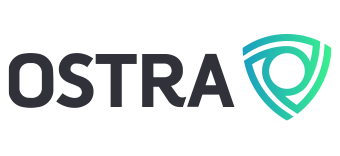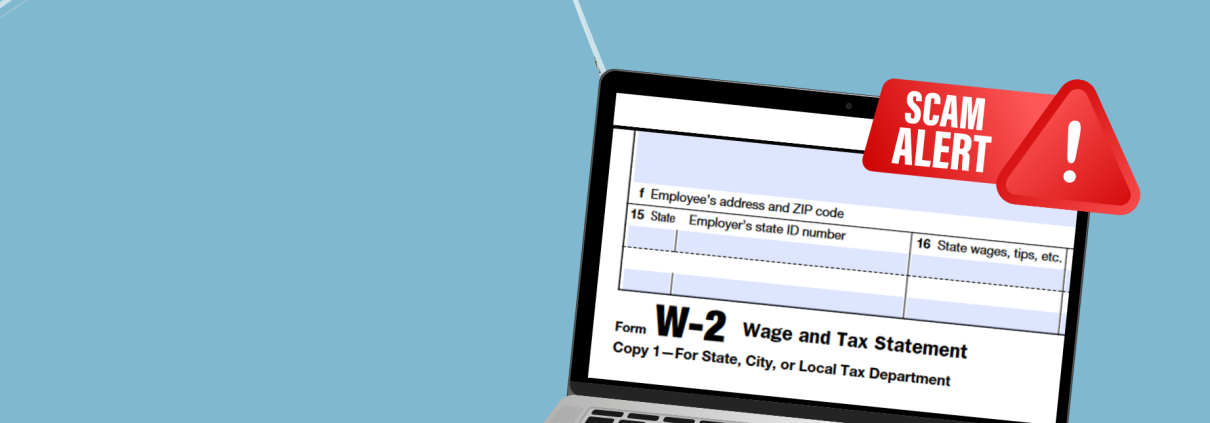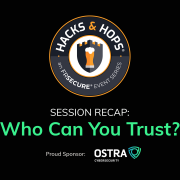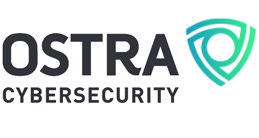4 Tips to Avoid Online Dangers During Tax Season
Stay Safe From Cyber Threats This Tax Season.
As tax season approaches, both individuals and businesses must prepare to file their returns. Since threat actors ramp up their efforts to exploit vulnerabilities and launch cyberattacks during this time, it’s important to make sure you are safeguarding sensitive financial information.
How do you prevent your company, your clients, or your employees from falling victim to identity theft, financial fraud, and other cyber threats over the next several weeks? In this blog, we will walk through some very simple and practical tips to navigate through cyber threats and effectively protect your data during tax season.
Note: In case you missed Ostra’s blog published around this time last year, be sure to check it out: Spot The Signs Of Tax-Time Phishing Scams.
Tip #1: Choose Powerful Passwords
The first step to safeguarding your data during tax season is updating and strengthening your passwords. This is one of the simplest yet most effective ways to enhance your security. Don’t make it easy for attackers to guess your credentials and harvest your data.
Here are some best practices when it comes to passwords:
- Opt for a combination of letters, numbers, and special characters.
- Steer clear of using easily guessable information such as your name or birthday.
- Don’t use the same password in multiple places—I know, I know—easier said than done right?
To help you create passwords that meet these criteria, consider using a reputable password manager app—there are many options such as 1Password, LastPass, or RoboForm. A password manager allows you to generate and store complex passwords securely and conveniently—which means you won’t need to sacrifice security for convenience.
Tip #2: No Easy Access
Another way to enhance your overall cybersecurity posture and keep sensitive financial information safe is by enabling Multi-Factor Authentication (MFA). With MFA, users are required to provide two forms of identification before accessing an account. It typically involves a verification code sent via text, email, or through a dedicated application.
By implementing MFA, the risk of unauthorized access to financial accounts is significantly reduced. Enabling MFA provides an additional layer of security during tax season and beyond.
Tip #3: Spot the Fakers
During tax season, it is crucial to BEWARE OF PHISHING. According to Cloudflare, 90% of successful cyberattacks start with email phishing attempts. Threat actors frequently send fake emails masquerading as legitimate tax authorities or financial institutions.
To mitigate risk, always verify the sender’s email address and refrain from clicking on any links or downloading attachments from unknown sources. Be assured that legitimate institutions DO NOT request sensitive information through email. By remaining vigilant and skeptical of unexpected or suspicious communications, individuals and businesses can better protect themselves from phishing scams that could compromise their financial data.
Tip #4: Inspect Your Statements
The final tip to help you avoid tax-time cyber threats is to monitor your financial statements regularly. By carefully checking your bank and credit card statements for any unauthorized or suspicious transactions, you can keep an eye on cyber threats and take action before things get out of hand.
If you detect any inconsistencies or irregularities, promptly report them to your financial institution for investigation. Early identification of fraudulent activity is crucial in minimizing potential financial losses and mitigating the impact of cyber threats. Stay proactive and attentive to your financial statements so you can effectively protect your accounts and assets from unauthorized access.
Prevention is the best policy
As tax season approaches, prioritizing cybersecurity is essential to safeguard your financial well-being. By following these tips and remaining vigilant, you can reduce the risk of falling victim to cyber threats, ensuring a secure and stress-free tax season. Remember, staying informed and adopting proactive security measures are the keys to protecting your sensitive financial information in today’s digital age.
Do you want to implement a more proactive approach to cybersecurity? Contact Ostra to learn more about our best-in-class, fully managed cybersecurity services.

Eunice Asemnor is a Security Analyst at Ostra Cybersecurity, a multi-layered and fully managed Security as a Service. With expertise in SIEM technologies, cybersecurity solutions, and advanced threat defense, Eunice plays a key role in protecting Ostra’s clients as a member of Your Trusted Cybersecurity Team.










